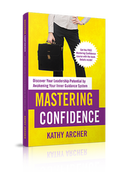|
Becoming an exceptional leader doesn’t simply take time. Extraordinary leaders hone their skills, develop certain talents and craft their powerful impact with ongoing intention. Are you committed to that journey? Mastery of leadership is a journey Those that we Judge to be masterful leaders likely knew that for them to become an expert leader in their field, they would need to commit to a process of continuous growth and development. That commitment and the continued effort allowed them to excel. Their journey was similar to that of a master chef’s, a karate master’s experience or the process a master pianist went through. It took time, dedication and effort. It's more than taking some training Mastery is an ongoing journey of learning and growth. We don't typically talk about mastery in leadership. Instead, we focus on skill development, taking some training or participating in a professional development opportunity. All of those are important, but they are only pieces. Each training is a tool to use on your way to mastering leadership. You must use the tool, practice with it and excel at it. Your title doesn't make you great You can become a leader simply by getting a title. Add to that your job description, a group of employees and a budget to manage. All of that puts you in the position, but none of it will make you a great leader. Applying your learning is key Once you realized that, you might realize you need some more training and assistance to work on your leadership skills. Perhaps you read a book on leadership. Maybe you take a course or two on communication, budgeting, and strategic planning. That still will not magically make you a great leader. However, if you read a book and start to apply what you're learning, you're probably going to be a better leader. If you take the courses and work on using the skills you were trained in, you are going to be an even better leader. Critically evaluate and improve yourself It is when you continually apply your learning that you begin to master certain skills. By evaluating how you are doing, learning from failures, trying new strategies and continually investing in bettering yourself that you will find you begin to truly excel. Don't settle The problem for many leaders is that they settle. They get to the point of being a mediocre leader or someone with average skills and they stop. They believe they are good enough to get by. They cease to take training on particular leadership skills. These “ok” leaders may focus on other team members their skill development. Be the leader who stands out If you are different, if you want more than that, perhaps it’s mastery you are looking for. If “good enough,” isn’t good enough, consider focusing on mastery. Mastering leadership takes a long time To become a masterful leader means that you're going to work on this, quite frankly, for years. Perhaps even your whole life. If you want to be a masterful leader, you know that you are going to continue to grow and develop and learn and train and apply what you've learned and learned some more and take some more. It's about a process. Mastery is a journey of continuing to develop yourself. There is no endpoint Know now that you will likely never actually reach the point of being the best or perfect or even a “Master.” If you ever talk to somebody who you consider to be a master at something, they will probably tell you they don't know everything thing. In fact, they've only dipped their toe it. Those that we deem as masters know that there's so much more for them to learn, so they continue to learn and grow. Commit to a lifelong pursuit of excellence To master leadership means that you're committing yourself to a lifelong journey. It is like pledging to yourself that you will persistently learn, grow, develop and improve yourself. I'm always going to be working on my skills, my strengths, my areas that maybe aren't so great. I'm going to continue to explore where I can grow even more. I'm going to continue to look inside and figure out
Start with mastering your confidence If you want to keep growing and developing yourself, it's important to realize that this isn't always going to be an easy journey. You will make mistakes. You will fumble. It will be weird, scary and downright painful at times. You are going to need to step outside of your comfort zone routinely, to get to the point of excellence. To do that, you'll have to move forward with confidence. The confidence isn't in knowing you can handle it, but the confidence that you will figure it out. If you are looking for a tool to help you master your confidence levels, you may be interested in this book. Be the best you can be today, and work towards being even better tomorrow Mastery is committing yourself to a lifelong journey of growing yourself. If you want to become the best leader that you can commit today to continue to grow. Commit today to never-ending this journey of becoming that better leader. Know that you will continuously have the ability to get that much further, to learn a little bit more, to develop a little bit more, to grow a few skills. That's mastery. Continuing on and on and on.
Ongoing training to grow women leaders in 🇨🇦 Canada's Nonprofit Organizations. Not a member of The Training Library yet? Join for $19.97 and enjoy a monthly webinar plus a library of courses to support your ongoing personal and professional development that is affordable and easily accessible! Discover the details here
0 Comments
I probably don’t need to tell you that increasing your confidence will make you a better leader. My question is, are you doing anything about that? Knowing it is important doesn’t change your experience of leadership. Acting on that knowledge does. If it is time for you to take action and become a more confident leader, keep reading. Let’s start with what a simple search on the Internet might show you. Articles on LinkedIn, MindTools and Inc. Magazine tell leaders to boost their level of confidence because research shows us again-and-again that:
The confidence to move forward despite challenges The level of confidence I’m talking about is not the know-it-all, arrogant and domineering kind. Instead, the kind of confidence that is necessary for effective leadership is the courage to move towards the shared vision, despite challenges. Leaders who demonstrate high confidence keep taking action, regardless if it’s clear how the team will do it. They trust they will figure it out along the way. The confidence to admit you don't know It is the leaders with high confidence that are comfortable admitting they don’t know and asking for help. They get really good at asking questions and encouraging communication on their team. Confident leaders don’t need to be the person with all the answers. They have the certainty that someone one their team will either know or they will figure out the way. They give them the resources to do that. The confidence to make mistakes Leaders who are self-confident are not afraid to make mistakes. They aren’t worried about the hard work that it is going to take to reach the goal. They know there will be challenges along the way, and they have the faith that they and their team will get through them. Mistakes are a given. Errors will be made. Confident leaders see them as stepping-stones along the way. The confidence to trust To lead in this way requires high levels of trust. The leader must trust themselves; their words and actions. They must trust their team. That means they know things will not always go as planned but trusting that together they can get back on track when something throws them off their path. This is inner confidence Perhaps you know all of this. Maybe you’ve experiences with a leader you report to. You may even find this at various times in your own leadership. When you trust and believe, things just work out better. The trick to developing this kind of unshakable confidence more often is to develop your level of inner confidence. Inner confidence is being able to manage your thoughts Inner confidence doesn’t come from others telling you that you have done a good job. It comes from you learning to manage your thoughts and emotions. An inner level of trust in yourself and what you are capable of is a result of believing. That starts with your thoughts. Inner belief in yourself is required regardless of skill level You may find that you then need to take some training or practice a certain skill. For example, you may realize that you need to improve your presentation skills. Before that, though, you must believe it will make a difference if you do. After learning the skill you need to believe that you can use it effectively. These are all thoughts. This is the basis for inner confidence. A tool to help you I recently wrote a book to help leaders learn to get the inner confidence they need to grow and develop themselves. It helps leaders become more aware of their thought and manage their thoughts. When leaders increase the ability to be mindful of what is going on inside of them, they find themselves more assured to deal with what is going on around them. Develop your inner confidence to become a better leader If you know it’s time to work on your inner confidence, start with becoming more mindful of what you are thinking. Look for ways you can trust what is going on. Accept the fact that you don’t need to know all the answers, be in control of everything or clear on every step ahead of you. Instead look for ways to use the resources you already have to simply take the next step. Kathy is a leadership coach for women who want to strengthen their leadership and find balance in life. She mentors women as they rediscover their purpose, passion and persistence for life while dealing with office politics, jerk bosses and the challenges of family life. In her signature program Women with Grit: Leading with Courage & Confidence, Kathy gives her ladies the hope and inspiration they need along with a kick in the pants to make positive change in their lives. |
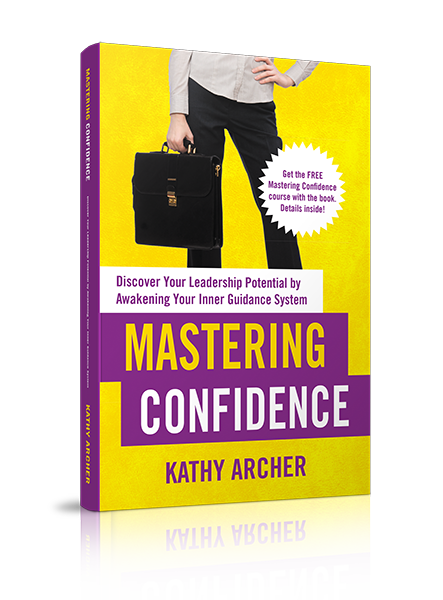
Available on Amazon
Archives
May 2024
|
|
Leadership TRAINING for Nonprofit Leaders
Become a confident and competent nonprofit Leader: Join The Training Library membership Executive and Leadership COACHING Leadership Coaching for Nonprofit Executives, Leaders and ManagerCoaching |
PODCAST for Nonprofit Leaders
The Surviving to Thriving podcast: Strategies, systems and support to lead your nonprofit with confidence FREE RESOURCES to Grow your Leadership Skills Free Leadership Training Resources, Worksheets and Templates |
Become a CONFIDENT LEADER
|

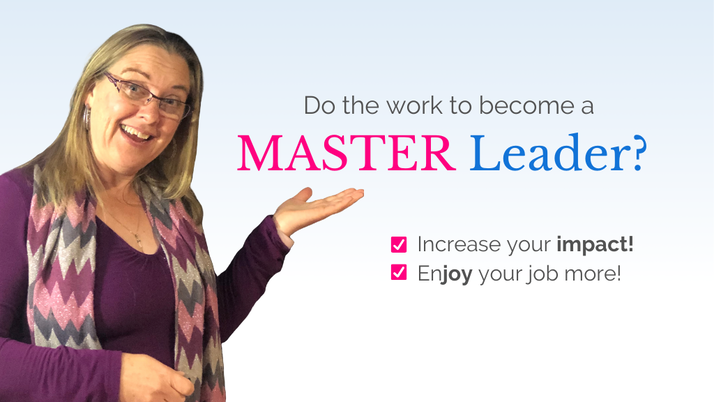

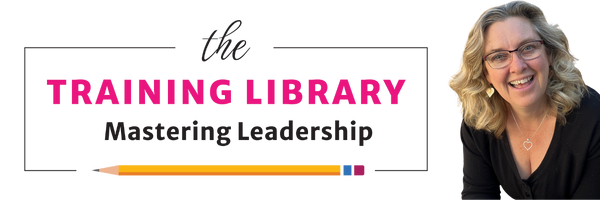


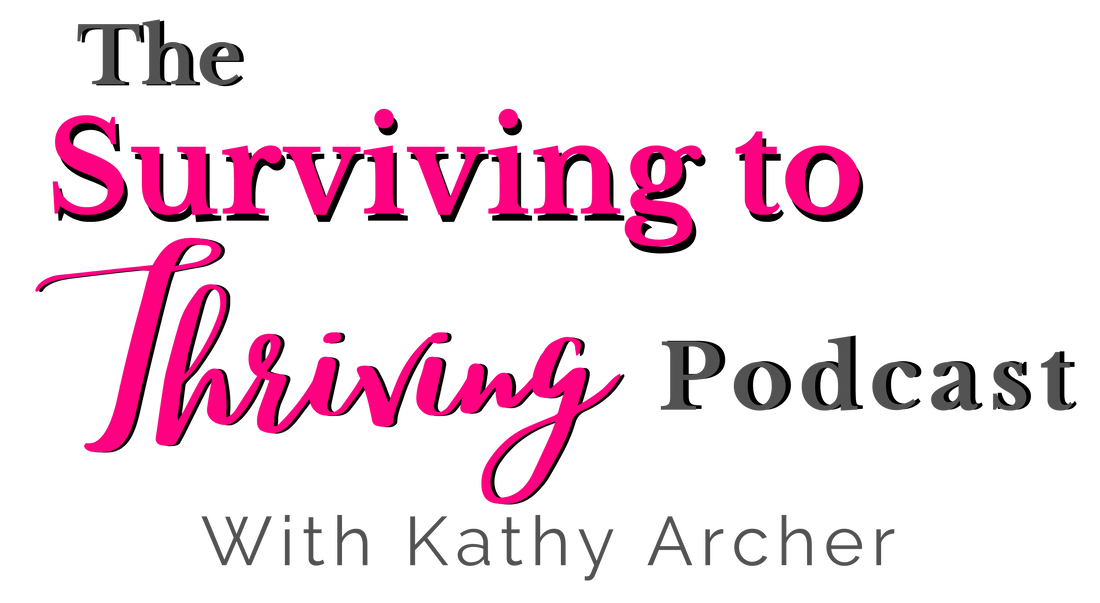
 RSS Feed
RSS Feed
